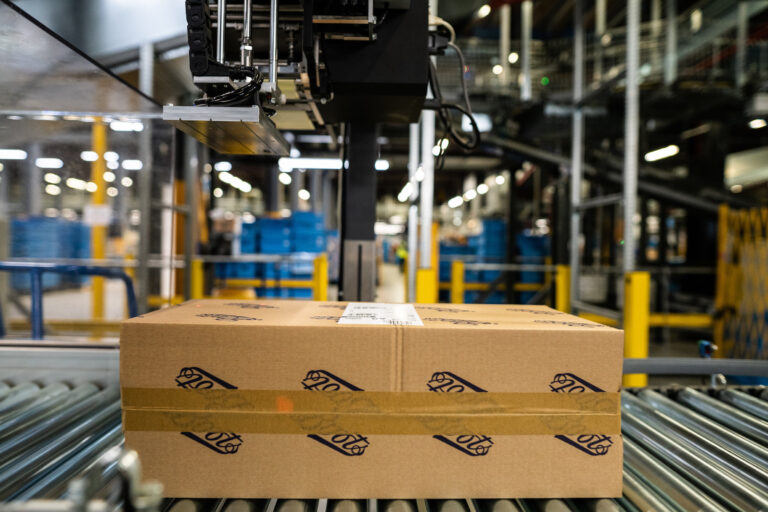Automation has been a boon for the warehouse. The productivity gains have driven the economy, particularly during this year, as businesses throughout the logistics sector have been able to handle the pressure of a continuous peak, and strain on ‘normal’ warehouse activities.
Take the home delivery market. Parcel carriers enacted peak planning back in March and haven’t really stopped since then. They had invested in having the capacity, and now find themselves in a tricky position of having to invest even further in the automation of networks to sustain a major economic and behavioural shift when it comes to e-commerce.
Automation is, and will continue to be, the future of logistics.
But is it too early to label this huge adoption of technology, this huge shift in the way that people work, as an industrial revolution? I don’t think it is…
As businesses benefit from the gains that automation brings, it’s time to think about how the logistics workforce in general will thrive during this transition.
A two-year Commission on Workers and Technology, conducted by the Fabian Society and chaired by Yvette Cooper MP, and published today, might make for challenging reading for logistics managers but it points towards a future under automation were everyone can benefit.
The left-leaning think tank does point out that the impact of the pandemic would have been so much worse were it not for new technology – as half of all workers were able to work from home in April 2020. Great for office workers, but not so much for those on the warehouse floor.
The Commission is also keen to point out that new technology is needed to boost productivity and pay in the UK.
It says that before the Covid-19 crisis, the UK experienced a decade of stagnant pay linked to terrible productivity growth – which it says was caused partly by insufficient and uneven investment in technology. The Commission’s report also says that France, Germany and the USA produce more than the UK for each hour worked. In post-Brexit Britain that won’t cut it on a world stage.
Yet there are areas of concern. The Commission also found that 61% of jobs furloughed in the first half of 2020 were in sectors at high risk of automation.
Therefore, the people whose jobs have been suspended during the Covid-19 crisis are therefore also more likely to see their work replaced by technology.
As I have interviewed business leaders throughout the logistics sector this year, the notion of job losses is countered with the argument of job displacement. Where robotics replaces the pick and pack worker it is seen as a chance for the worker to become the ‘master’ of the robot, to repair and manage its output. But that is a huge shift in the skill base of that employee, and will the employer give that individual the time to retrain and learn new skills in order to maintain its expensive investments in technology? Or will it find someone else who has funded their own training in this sector by way of education?
As the Commission points out, rapid automation risks high levels of technology driven-job replacement.
With a deep recession beginning, the Commission says, there is a risk that a sharp cyclical jobs contraction could give way to long-term, structural unemployment as industries are restructured and technologies replace human tasks.
The exact scale of that task is inconclusive, as the researchers that conducted the Commission’s report for the Fabian Society have different views, but it does cite ONS estimates from 2019 that suggest more than 1.5 million low-skilled jobs are at particularly high risk.
Automation has the potential to create new jobs, with new skills, for the young people of this country. But, the Commission says, much in the ways that the economy of the UK changed for good during the economic reforms of the 1980’s, this industrial revolution could see some people trapped in persistent long-term unemployment because of a mismatch between the new jobs and the profile and location of jobseekers.
This is when it becomes incumbent on government, not logistics, to support incomes while workers train or retrain. One of the Commission’s recommendation that the government develops a package that will make it much easier for learners to work part-time and train part-time; take short periods off work to train; or, in the case of 19 to 21-year-olds, train full-time.
For logistics managers throughout the country having access to a skilled workforce is paramount if the automated industrial revolution is to be as successful as it can be. Having pro-active government that deliveries a societal response to the benefits a booming logistics sector can bring, would go a long way towards putting the UK economy back on track on a global scale.
Christopher Walton, Editor, Logistics Manager







